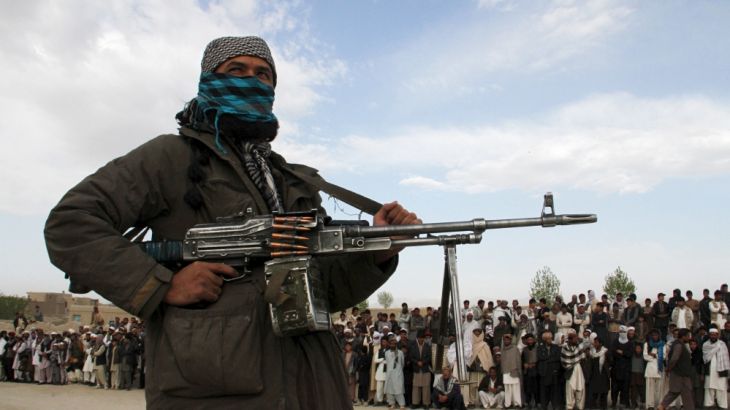Rival Afghan Taliban factions agree on ceasefire
Peace deal and prisoner swap agreed during Pakistan meeting, after heavy losses in recent battles between factions.

The two rival factions within the Afghan Taliban have agreed in a meeting in Quetta, Pakistan, to a ceasefire and prisoner exchange.
Leadership of the Taliban has been in dispute since the confirmation last July of the death of the armed group’s founder, Mullah Omar – with new leader Mullah Akhtar Mansoor struggling to keep the group united.
Keep reading
list of 4 itemsPhotos: Tourist numbers up in post-war Afghanistan
Taliban ban on girls’ education defies both worldly and religious logic
Afghanistan calls for ‘respect’ after Cricket Australia snub
Specific details about the ceasefire and prisoner swap have not yet been released.
|
|
Representatives of a splinter group headed by Mullah Mohammad Rasool Akhund met senior Taliban leaders aligned with Mansoor in Quetta on Friday, said Al Jazeera’s Qais Azimy, reporting from the Afghan capital Kabul.
Our correspondent said the deal was reached after the two sides suffered heavy casualties during recent Taliban-on-Taliban fighting in Afghanistan.
“This is a very important agreement for Afghanistan,” he said, adding that the threat posed by a united Taliban could cause significant problems for Afghan forces when the annual fighting season kicks off in March.
“If these groups agree with each other, and fight against Afghan forces, the Afghan government will face a much stronger opposition,” he said.
He added, however, that a united Taliban may also enable Afghan peace talks to go ahead, as the government will be able to identify which group it needs to talk to.
Despite leadership disputes, the Taliban have made big advances this year, inflicting heavy casualties on Afghan forces fighting largely on their own since the withdrawal of most foreign combat troops last year.
ANALYSIS: The Taliban’s resurgence in Afghanistan
Earlier this month, a suicide bomber attacked a joint Afghan-NATO convoy near Bagram airbase outside Kabul, killing six US soldiers and wounding three others.
Afghan forces are also battling to push out Taliban fighters who seized large swaths of the key, opium-rich district of Sangin in southern Helmand province.
The Taliban has also claimed a number of attacks in and around Kabul, including a suicide bombing at a restaurant in the capital on Friday which killed at least three people.
US President Barack Obama announced in October that thousands of US troops would remain in Afghanistan after 2016, back-pedalling on previous plans to shrink the force and acknowledging that Afghan forces were not ready to stand alone.